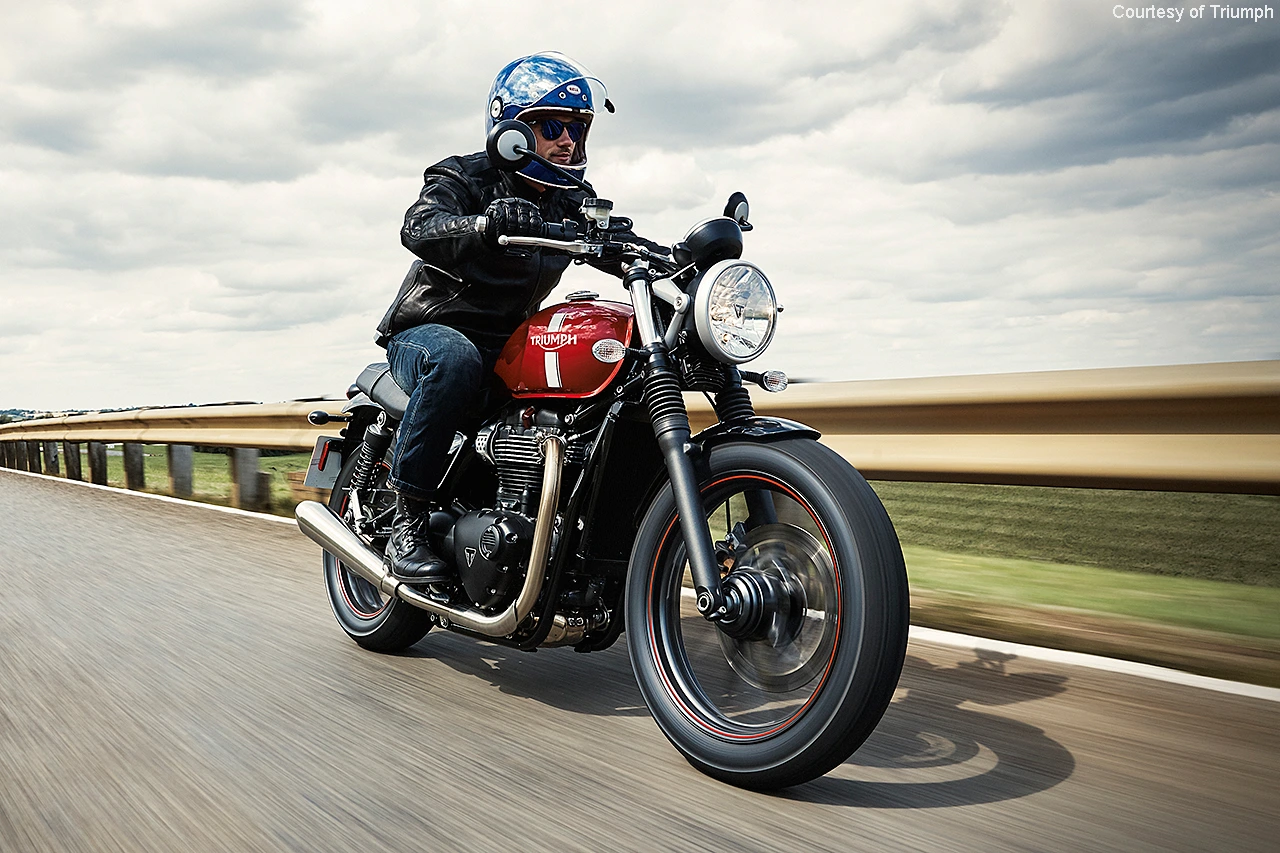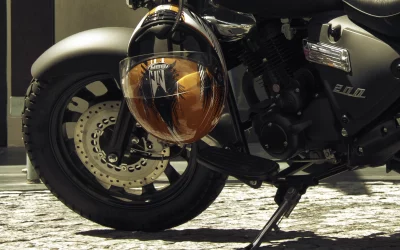Colorado Motorcycle Accident Law
Riding your motorcycle around the streets of Colorado Springs and the surrounding region may be a terrific experience: the wind in your face, the freedom of the open road, and, of course, an elegant car that enables you to effortlessly slide through traffic regardless of where you need to go.
Regardless of where you ride in Colorado, you must follow the regulations meant to safeguard you and other drivers.
Free Consultation
In Person | Phone | Zoom
Motorcyclists in Colorado Springs Must Always Wear Helmets.
Colorado law requires all motorcycle riders to wear a helmet at all times. This covers both the driver of the motorcycle and any motorcycle passengers.
Helmet wearing may significantly minimize the risk of head damage in a motorcycle collision, including traumatic brain injury. Motorcycle accident victims who do not wear helmets are at risk of suffering a serious TBI, which may have long-term implications. Head injuries may impair memory, attention and concentration, and even emotional control, significantly reducing many sufferers’ overall quality of life. Motorcycle riders must wear a DOT-approved helmet when riding in Colorado Springs.
Colorado Requires Riders to Wear Eye Protection.
Riding a motorcycle without wearing eye protection puts you at risk. Wind blowing past your face may cause your eyes to tear, making it very difficult to see everything going on around you on the road or perhaps causing you to shut them entirely. Additionally, some drivers have things flying into their eyes, impairing their eyesight and making the motorcycle difficult to handle.
Colorado law requires motorcycle riders to wear eye protection to lessen the risk of damage caused by an obstruction that impairs the driver’s vision. They may safeguard their eyes by using eyeglasses, goggles, or a protective face shield, either on or off the helmet.
They may, however, circumvent this requirement if the motorcycle is fitted with a protective windshield. The windshield provides critical eye protection, preventing motorcycle riders from getting debris in their eyes and perhaps reducing tearing caused by the wind, resulting in increased overall vision as they traverse the highways.
Motorcyclists in Colorado Springs Are Required to Possess a Colorado Motorcycle License.
In Colorado, motorcyclists must possess a motorcycle license in addition to a standard driver’s license. To get that license, motorcyclists must invest the time required to ride a motorcycle correctly and demonstrate that they have mastered the requisite abilities. Anyone seeking a motorcycle license in Colorado must first apply for a Class M permit.
Motorcycle riders in Colorado must pass the Class D knowledge exam before obtaining a Class M license. Motorcycle riders must adhere to some of the same regulations as other drivers, which means they must have a firm grasp on both general driving laws and motorcycle-specific legislation.
During the permission period, Colorado Springs motorcycle riders are permitted to ride their bikes only during daylight hours and not transport passengers.
Minor Drivers may be required to meet additional requirements to get a motorcycle license.
Minors must have their permit and keep a clean driving record for at least six continuous months before taking the road test. Additionally, individuals must complete additional crucial criteria after they have their motorcycle license.
The Colorado Rider Education Program’s basic rider training prepares minor motorcycle riders for various road hazards. It acts as a platform for promoting motorcycle safety across the state by developing riders who have a better feel for the motorcycle and are aware of potential hazards.
As a consequence, such riders feel more confident. They have the abilities necessary to analyze road conditions, avoid possible risks, and reduce their chances of being involved in a serious accident.
Colorado drivers must be at least sixteen years old to get a motorcycle license. Colorado Springs riders must likewise undertake the same requirements as drivers earning their first driver’s license.
Minor motorcycle riders must also get permission from their parents to obtain a motorcycle license.
Colorado Springs, Motorcycle Riders May, Be Required to Follow Certain Restrictions When Purchasing a Motorcycle.
When selecting a motorcycle in Colorado Springs, motorcyclists must comply with two critical Colorado rules. To begin, they must guarantee that the motorcycle’s handlebars do not rise past the operator’s shoulders while the rider is properly seated on the motorcycle.
Tall handlebars make it very difficult for the driver to operate the motorcycle properly and increase the danger of losing control. Additionally, Colorado law specifies a noise limit of 82 decibels for motorcycles traveling at speeds greater than 45 miles per hour. These noise rules guarantee that riders in Colorado Springs do not contribute to unwanted noise pollution when traversing neighborhoods.
Motorcycles Operating in Colorado Springs Must Comply with Minimum Safety Requirements.
To operate a motorcycle in Colorado Springs, the motorcycle must fulfill the state’s basic safety criteria.
Appropriate illumination, including functional headlights and taillights. These lights must provide sufficient illumination to make the motorcycle completely visible.
Illumination of the license plate, so that other cars and police officers can see the plate if necessary. Brakes must function properly, including brakes that the driver can use simply and efficiently.
A secure seat that helps maintain the rider in position in the event of an accident, rather than sliding to the side.
Rearview mirrors increase the rider’s visibility, lowering the danger that the rider may fall behind the traffic flow and cause or contribute to an accident. The rider may not lawfully drive a motorcycle that does not satisfy these minimum safety criteria.
Motorcycle Riders in Colorado Springs Are Not Allowed to Split Lanes.
Lane splitting is often a point of contention between legislators and motorcycle riders around the United States. Many motorcyclists believe that lane splitting, which entails passing between two lanes of traffic rather than taking up a whole lane, allows them to reach their destinations quicker in congested traffic.
With Colorado Springs’s often congested traffic and numerous standstills, lane splitting might enable motorcyclists to weave their way through it, allowing riders to reach their destinations—and off already-congested roads—much quicker than they would if they sat in gridlock alongside everyone else.
However, Colorado law expressly bans lane splitting—and for a good reason.
Motorcycle riders who seek to split lanes go through an area where other cars may not anticipate traffic. Consequently, such drivers may overlook them, particularly if the motorcycle is in the driver’s blind area. When traffic resumes normal flow, the driver may lose sight of the motorcycle and cause an accident.
Lane splitting regulations also protect motorcycle riders’ rights to the whole of the lane they occupy. At times, drivers of passenger cars may attempt to switch lanes or utilize a motorcycle-filled lane to pass or avoid another car. Distracted drivers may also drift into the motorcycle lane, believing they have better maneuverability due to the motorcycle’s reduced space requirements. The motorcycle rider may get catastrophic injuries due to their failure to account for the car’s presence in their lane, particularly if it happens unexpectedly. Anti-lane splitting rules benefit both motorcycle riders and passenger car drivers.
To get a motorcycle license in Colorado Springs, riders’ licenses must not have been revoked for any other reason.
According to Colorado law, motorcycle riders may get a license only if they can lawfully hold a driver’s license in the state. If the state has revoked a driver’s license for any reason, including drinking and driving or violating traffic laws, the person cannot have a motorcycle license.
Colorado Springs Motorcycle Riders Must Follow the Same Road Rules as Passenger Car Drivers.
Colorado Springs motorcycle riders, like any other motorist, must obey traffic regulations. Operating a motorcycle rather than a passenger car does not provide an adequate justification for disregarding traffic laws.
Speeding
Motorcycle riders, like drivers of passenger cars, are required to obey stated speed restrictions. Often, Colorado Springs cyclists will feel as if they can accelerate, particularly on winding mountain roads or in twisty terrain. Due to the motorcycle’s smaller footprint on the road, it may prove to be more nimble.
However, going at excessive speeds increases the danger of motorcycle accidents just as it does for passenger car drivers. Speeding may make a collision much more hazardous for motorcycle riders since they have so little protection from the road and may receive more serious injuries as a consequence.
TRAFFIC SIGNALS
Motorcyclists must also obey traffic signals, which include yield signs, stop signs, and stoplights. Often, bringing a motorcycle to a complete stop might be challenging. While motorcycles can stop more quickly, once stopped, the driver must balance the motorcycle. A large touring bike, particularly towards the conclusion of a long ride, may become quite difficult to keep up.
Motorcycle riders may attempt to coast past red lights and stop signs to avoid coming to a full stop. Failure to come to a full stop, on the other hand, might make it more difficult to predict what the
motorcycle will do and may lead the driver to disregard the right of way, resulting in a catastrophic collision.
Using Signals While Riding a Bike
Along with obeying traffic signals, motorcycle riders must utilize their signals to indicate intended actions, such as utilizing turn signals before changing lanes or making a turn.
At times, motorcyclists may neglect to express their intentions, particularly while making a quick turn. Failure to communicate their intentions, on the other hand, might make it difficult for other drivers to anticipate the motorcycle rider’s conduct.
Due to the difficulty of judging a motorcycle’s speed, failing to use signals may further increase the danger of another car colliding with them, resulting in a catastrophic accident.
As a motorcycle rider, you are responsible for knowing, understanding, and adhering to all motorcycle laws in Colorado and any other state through which you travel on your motorcycle. By adhering to those regulations, you may reduce your accident risk and contribute to your safety and those who use the road with you.
Have you sustained significant injuries in a motorcycle accident in Colorado Springs? If you were injured due to another party’s negligence, you might be entitled to compensation for your injuries. Contact an experienced Colorado Springs motorcycle accident attorney as soon as possible after your accident to arrange for a free consultation to discuss your accident, who may have caused or contributed to it, and the compensation you may be entitled to for your injuries.







